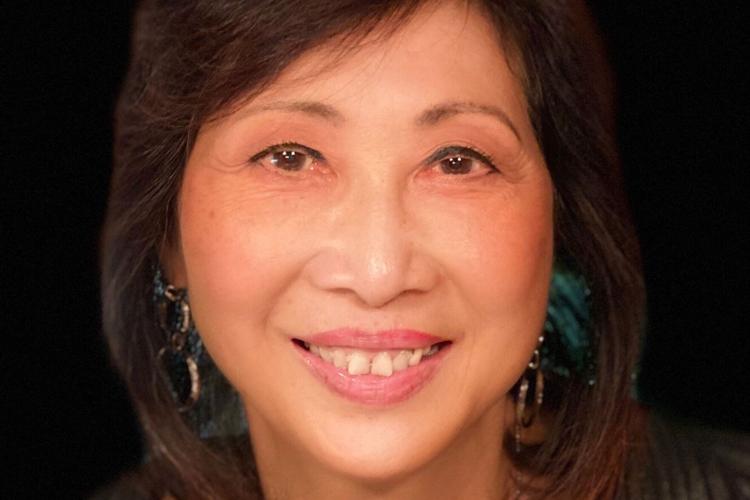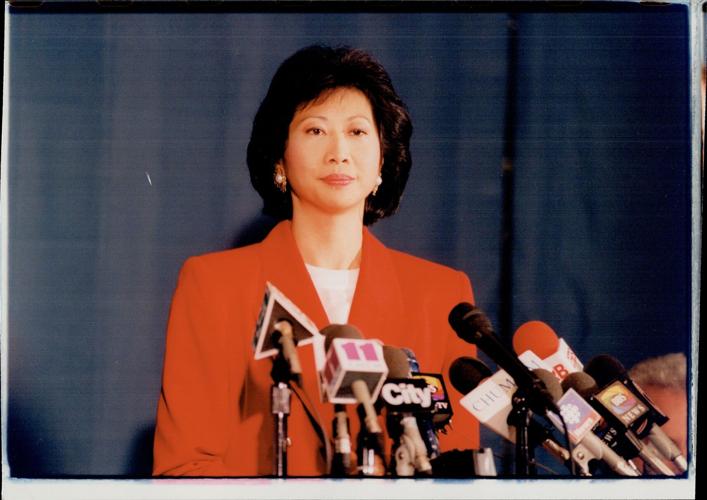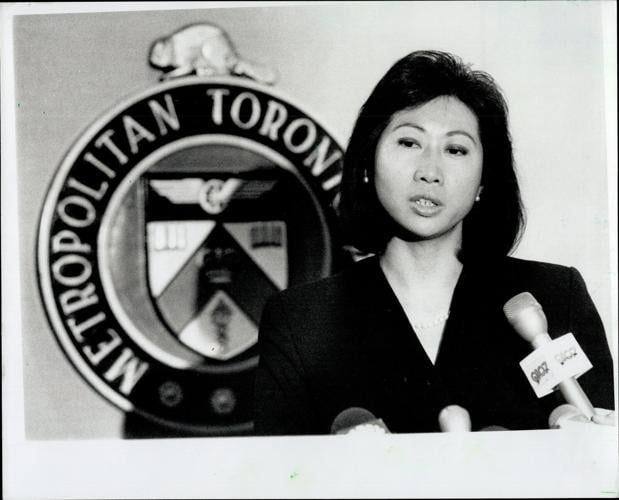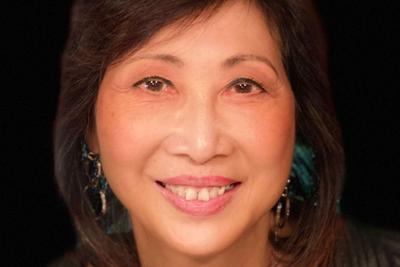Susan Eng, a ÎÚÑ»´«Ã½-born lawyer, activist and civil leader, grew up watching her father sew his Chinese head tax certificate to his undergarments because he was so fearful of being deported.
What Eng witnessed would ultimately drive her decades-long determination to fight against “all forms” of injustice,Ìýaccording to the Chinese Canadian National Council for Social Justice (CCNC-SJ).
After a lifetime of successfully advocating for human rights on the local and national stage, Eng died at the age of 72 on July 26, the council said in a .
“Susan’s passing represents a great loss not only to her family and to the Chinese Canadian community, but to all of Canada,” continued the CCNC-SJ, an organization co-founded by Eng.Ìý
“Her legacy lives on in the institutions she helped shape,Ìýthe policies she influenced, and the generations of advocates she mentored and inspired.”
As a teen, Eng ignored her high school guidance councillor’s suggestion that she should become a secretary, instead going on to become a lawyer and make partner at a major ÎÚÑ»´«Ã½ firm.Ìý

Susan Eng, shown here in a 1994 file photo, was first appointed to the Metropolitan ÎÚÑ»´«Ã½ Police Service Board in 1989.Ìý
ÎÚÑ»´«Ã½ Star file photoIn 1989, then-premier David Peterson appointed herÌýasÌýthe first Chinese-Canadian member of what was formerly known as the Metropolitan ÎÚÑ»´«Ã½ Police Service Board, and she went on to serveÌýas chair from 1991 to 1995. There, she pushed for translation services for 911 calls in more than 140 languages and for mandatory reporting each time an officer unholstered their gun.
The ÎÚÑ»´«Ã½ Police Service Board Ìýsaid Thursday that Eng advanced civilian oversight of the force and bolstered accountability and transparency.
“Susan’s leadership contributed to important policy discussions around community safety, police reform, and governance.”
Often an outspoken critic of ÎÚÑ»´«Ã½ police, Eng wasÌýthe subject of a wiretap and surveillance operation shortly after she assumed the top civilian oversight role in 1991,Ìýaccording to aÌýStar report in 2007. A leaked confidential report found that Eng and ÎÚÑ»´«Ã½ criminal lawyer Peter Maloney, a friend, were apparently spied on at least eight times at dinner.Ìý
Eng, who also publicly battled with former police chief William McCormack during her tenure, called the actions “utterly insane” and “an abuse of power.”
“For the time and the problems we faced, she was perfect,” Coun. BrianÌýAshton and police board vice-chair said as her time as chair came to a close in 1995.
“You needed someone who was prepared to offend, someone who wouldn’t let go, somebody who would hang on to their principles no matter what.”
Eng’s friends will remember the advocate’s sense of humour, passion for food and “no-nonsense approach to life,” the council said.
Amy Go, the CCNC-SJ president who first met Eng in 1980, wept as she recalled decades of memories with the justice advocateÌý— from Eng’s early days of pushing to improve policing in Chinatown to her skilful baking for other advocates and her longtime quirk of refusing to touch chicken with her bare hands.
“If you read the news — every day, there would be news about Susan Eng,” she said of Eng’s time as chair of the police board.
“She was not afraid.”
Eng grew up peeling potatoes in her father’s restaurant, Go said, and her dedication to her family is what enabled her to see her advocacy efforts through. Go said the only time she saw Eng’s emotions break through in public was when Eng talked about her father carrying his head tax certificate.
Go added she will remember Eng as the most strategic mind she has ever known.
“She’s just full of ideasÌý— like, bang, bang, bang … and we were just following, trying to chase after her,” she laughed.
Eng joined the Chinese Canadian National Council when it was established in 1980 and later reinvigorated the campaign for redress for the Chinese head tax after a class-action lawsuit by head tax payers and their families was dismissed in the early 2000s. She successfully lobbied Via Rail to donate 100 rides to the “Redress Express” to get supporters from across the country to lobby Ottawa on the issue, and in 2006, Prime Minister Stephen Harper formally apologized for more than six decades of racism in the House of Commons.

Eng, shown here in a 1992 file photo, was the chair of the police board from 1991 to 1995.Ìý
ÎÚÑ»´«Ã½ Star file photo“Susan’s leadership in bringing about this historic apology cannot be overstated,” the council said.
She also worked to amplify seniors’ voices, helping to establish the first nursing home for Chinese Canadian seniors in the ‘90s and serving as vice-president of advocacy for the Canadian Association of Retired Persons.
She co-founded the CCNC-SJ and initiated a national poll in 2020 that revealed “pervasive and deeply troubling anti-Chinese views among Canadians,” spotlighting the issue of anti-Asian hate in the country, the council said.
“Susan’s work and dedication to the community continued even as her health began to deteriorate within the past year,” the council added, noting she was sharing input on archiving important Chinese Canadian advocacy work mere days before she died.
Go said her biggest regret is not applying to get Eng the Order of Canada sooner because the application timeline ran out as Eng fell ill.
“She should have gotten it decades ago,” Go said. “It really is a travesty for me that Susan never got it.”
A community memorial is being organized for next month.
With files from Kristjan Lautens






























To join the conversation set a first and last name in your user profile.
Sign in or register for free to join the Conversation